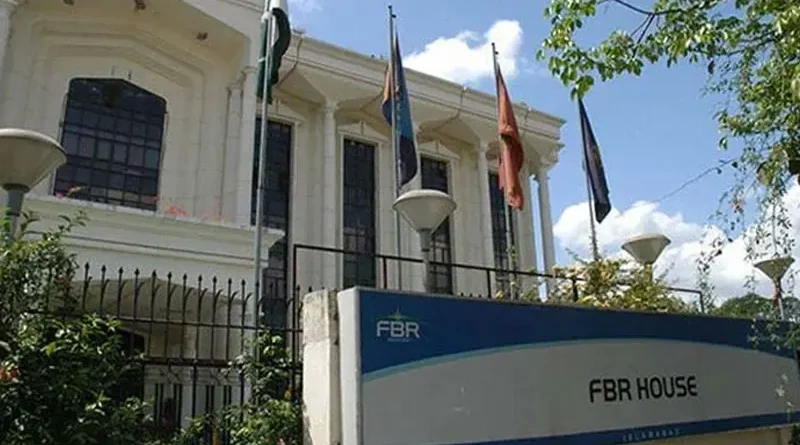Plan to rid FBR policy board of politically motivated appointments okayed
ISLAMABAD: The inter-ministerial committee has given the go-ahead to restructure the Federal Board of Revenue’s (FBR) policy board to put an end to politically motivated appointments, reported The News on Saturday.
The committee, formed under the Special Investment Facilitation Council (SIFC), met in the presence of Chief of Army Staff (COAS) General Asim Munir and approved the restructuring of FBR’s policy board. It would not now comprise bureaucrats, technocrats, economists and tax experts.
As per the current structure, FBR’s policy board comprises nominees of the National Assembly speaker and Senate chairman. However, under the proposed mechanism such politically-motivated appointments would be disbanded.
The IMF’s technical team had recently taken up FBR’s restructuring and policy actions to overhaul the country’s taxation system. The World Bank had also approved RISE-II and Pakistan Raises Revenues (PRR) for streamlining FBR’s overhauling, which remained a pipe-dream despite securing multimillion-dollar loans in the past.
Chairman FBR Amjad Zubair Tiwana told The News that SIFC had not approved the restructuring formally and the proposals were referred to the inter-ministerial committee. He explained that the recommendations would be finalised after the minutes of the meeting will be issued.
However, sources, privy to the development, told the publication that Caretaker Finance Minister Dr Shamshad Akhtar made a presentation on the plan in front of high-ranking officials of the military establishment.
As part of the first step, the FBR policy board would be overhauled and top bureaucrats, technocrats, economists and tax experts would be included in it so that the authority is run professionally.
Furthermore, the tax machinery would be divided into two wings the FBR and Federal Board of Customs (FBC). The proposal also suggests that FBR’s policy wing and operation wing’s jurisdiction would be transferred to the finance ministry and revenue division respectively.
The Inland Revenue Service (IRS) would look after income tax sales tax and federal excise duty (FED), whereby the director general would be supposed to look after three major taxes.
The IMF’s technical team had suggested to the government to form a National Tax Authority (NTA) but that would not be possible at the moment. However, once an elected government comes in it would be forced to shift to NTA if it opts to enter into a fresh medium-term programme of three years once the existing Standby Arrangement (SBA) expires in April 2024.
Though the NTA may be formed as an umbrella organisation but it would require political backing and support of the federating units to ensure it is up and running.
The FBR has already appointed district revenue officers to broaden the tax base. It is yet to be seen how the linkages with provinces are going to be established.
The provinces are reluctant to transfer back any powers to the Centre, which were enshrined in the 1973 Constitution, and also protected under the 18th Amendment.
While referring to Article 147 of the Constitution, which states, “Notwithstanding, anything contained in the Constitution, the government of a province with the consent of federal government entrust either conditionally or un-conditionally to the federal government or its officers functions in relations to any matter to which the executive authority of the province extends; provided that the provincial government shall get the function so entrusted ratified by the provincial assembly within sixty days.”
Citing this article of the Constitution, the official said that the provinces could shift the responsibility of collecting income tax on agriculture, GST on services and property tax to the FBR while NTA could utilise the workforce of both the FBR and FBC to collect provincial taxes, which would be transferred to the provinces after fee deduction.
However, it is yet to be seen how things move in the desired direction in the months to come, the sources concluded.

